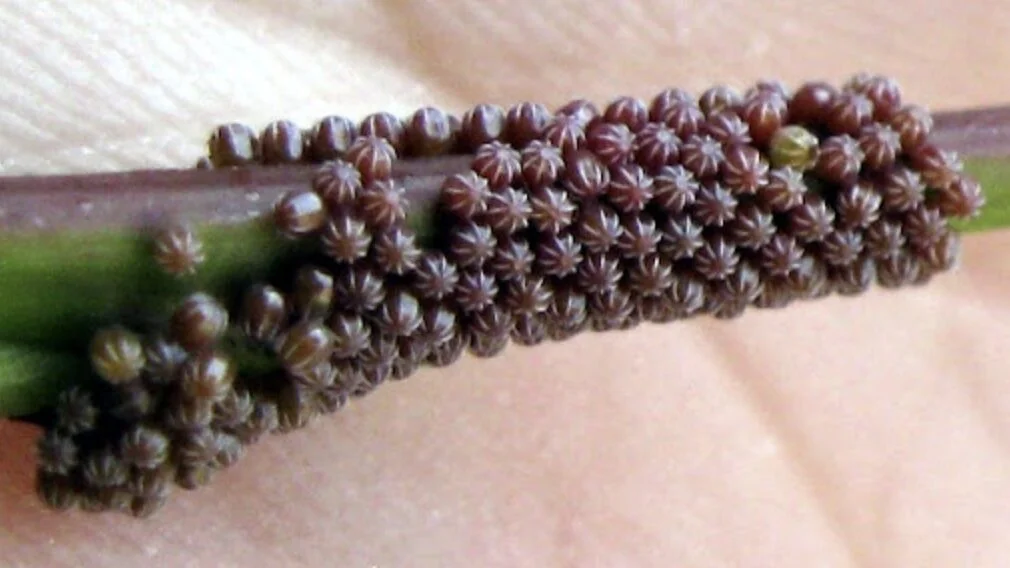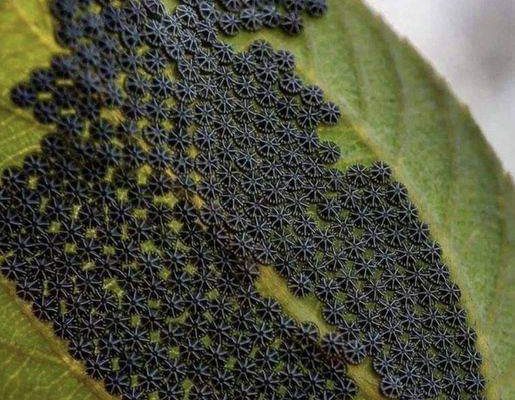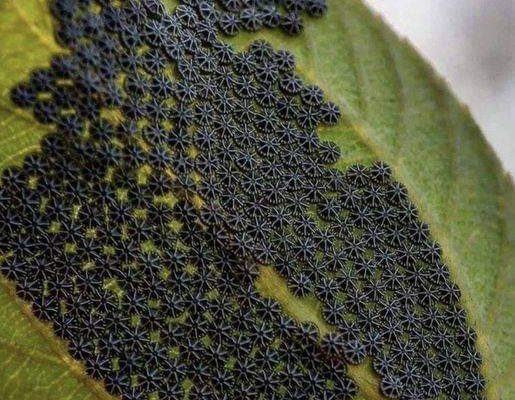Recently, I discovered that the strange, black geometric patterns on my garden leaves were Nymphalis Antiopa butterfly eggs, also known as Mourning Cloak butterflies. Initially, they seemed like an alien infestation, but they turned out to be beneficial. These intricate eggs look like delicate black lace spread across the leaves, laid in clusters, with each tiny egg forming a perfect geometric shape.
After hatching, the black caterpillars with white spots and spiny bodies emerge. They feed primarily on trees and shrubs like willows, elms, and poplars, not on garden flowers and vegetables. This makes them less of a threat to your garden plants. The caterpillars undergo several growth stages before forming a chrysalis, eventually transforming into beautiful Mourning Cloak butterflies with dark wings bordered in yellow and blue spots.
These butterflies hibernate during winter and are among the first to appear in spring. If you find these eggs or caterpillars in your garden, it’s best to leave them be. They contribute to a healthier ecosystem and offer a fascinating glimpse into the lifecycle of these unique butterflies.





